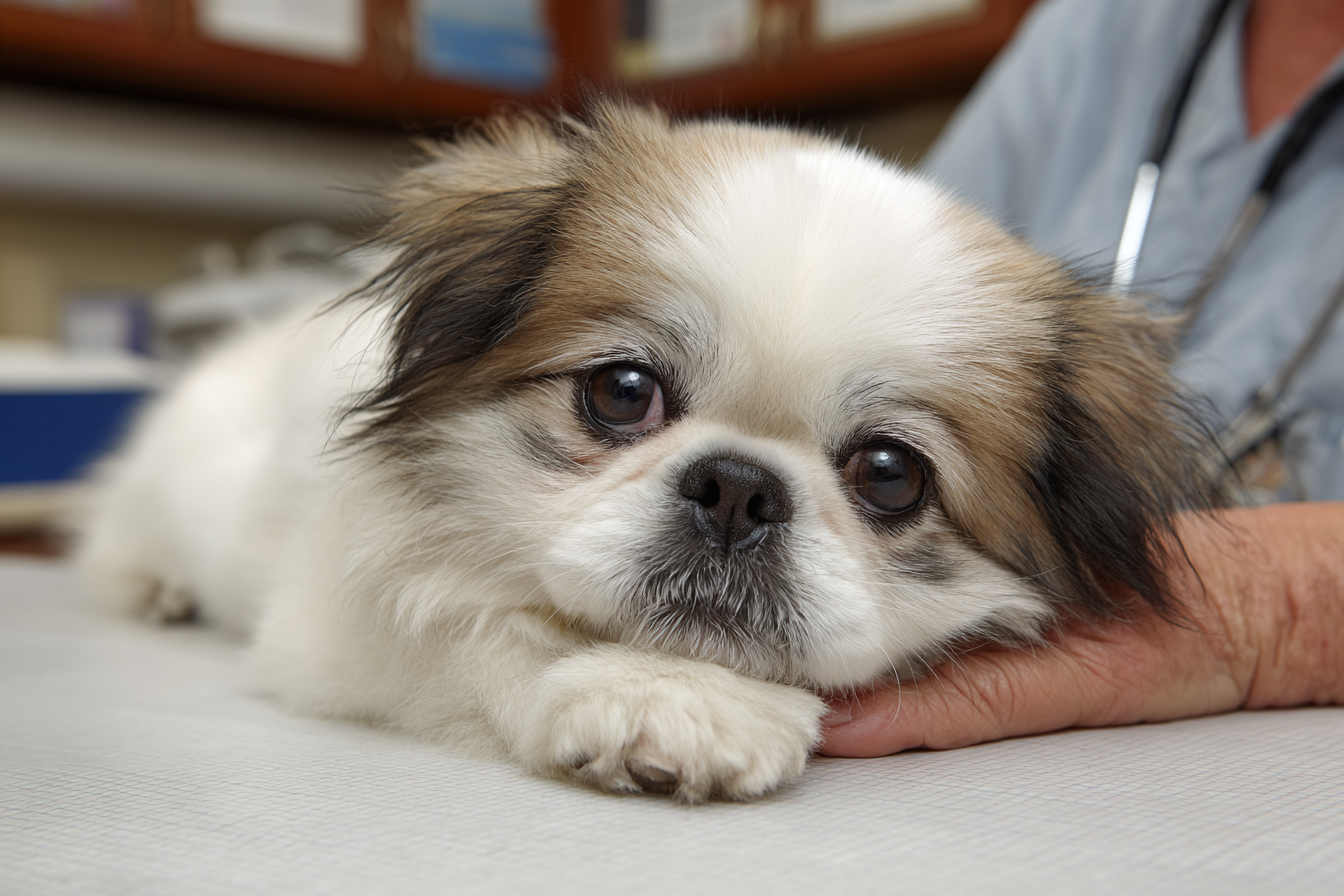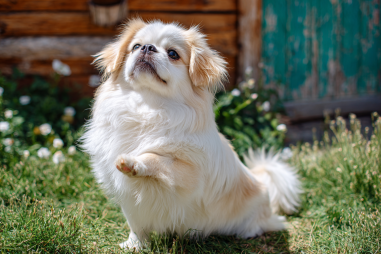Pekingese dogs, with their distinctive lion-like appearance and charming personalities, have long been beloved companions. However, their unique physical traits make them susceptible to a range of health challenges that every potential or current owner should be aware of. Understanding these health problems, recognizing early symptoms, and practicing preventive care can go a long way in ensuring your Pekingese leads a happy, comfortable life.
Overview of Pekingese Breed Health
The Pekingese breed, originally bred as a lap dog for Chinese royalty, is characterized by its flat face, large eyes, and long flowing coat. While these features add to their appeal, they also contribute to some notable health concerns. Generally, Pekingese dogs have a lifespan ranging from 12 to 14 years, but this longevity can be affected by the presence of chronic or acute medical issues. Many of the breed’s problems stem from their brachycephalic (short-nosed) structure, while others arise due to their size, coat type, and predisposition toward certain genetic disorders. Knowing which health problems are common and implementing routine care can help mitigate risks.
Respiratory Issues and Brachycephalic Syndrome
One of the most serious health concerns in Pekingese dogs revolves around their brachycephalic anatomy. The breed’s flat face and short nasal passages can lead to brachycephalic obstructive airway syndrome (BOAS), a condition that impairs their ability to breathe properly.
Symptoms of this syndrome can include:
- Noisy breathing or wheezing
- Excessive panting, especially in warm or stressful situations
- Coughing or gagging
- Difficulty exercising or intolerance to heat
- Collapse in severe cases
If you notice any of these signs, it’s crucial to limit your dog’s exposure to heat and strenuous activity and consult your veterinarian promptly. Management may involve weight control, avoiding environmental stressors, and in some cases, surgical intervention to improve airflow.
Eye Conditions Common in Pekingese
The Pekingese’s large, prominent eyes are prone to various ocular problems. Their shallow eye sockets and protruding eyes make them especially vulnerable to injury and irritation. Some common eye conditions include:
- Dry eye (keratoconjunctivitis sicca): This occurs when tear production is insufficient, leading to painful dryness and potential infections.
- Corneal ulcers: Scratches or injuries to the cornea from foreign objects or trauma are common due to the eyes’ exposure.
- Entropion: A condition where the eyelids roll inward, causing eyelashes to rub against the eye surface, leading to discomfort and damage.
- Progressive retinal atrophy (PRA): A genetic disorder that can lead to gradual vision loss and blindness.
Regular veterinary eye examinations and prompt attention to any redness, discharge, or excessive tearing will help detect and treat issues early, preserving your dog’s eyesight.
Joint and Mobility Problems
Though small, Pekingese can suffer from joint and mobility problems that affect their quality of life. Their unique bone structure and heavy coat place extra strain on their limbs and joints, making some conditions more prevalent. Typical issues include:
- Patellar luxation: This is the dislocation of the kneecap, leading to pain and intermittent lameness.
- Hip dysplasia: Although less common than in larger breeds, Pekingese dogs can still develop abnormal hip joint formation.
- Intervertebral disc disease: Their short legs and large head can contribute to spinal problems, potentially causing pain and mobility difficulties.
Maintaining a healthy weight, providing regular gentle exercise, and avoiding excessive jumping can help reduce the risk of joint problems. If mobility issues arise, your veterinarian may recommend physical therapy, medication, or supplements to support joint health.
Skin and Coat Concerns
The luxurious double coat of a Pekingese requires consistent grooming to prevent skin problems. Without proper care, they are prone to:
- Matting and tangling: Mats can irritate the skin and harbor bacteria, leading to infections.
- Allergies: Pekingese may be sensitive to environmental allergens or certain foods, resulting in itchy, inflamed skin.
- Hot spots: These are localized areas of skin inflammation and infection, usually caused by scratching or moisture trapped under the fur.
- Yeast or bacterial skin infections: Often secondary to allergies or poor grooming.
Regular brushing, proper bathing, and attention to any signs of irritation or odor are essential. Consulting a vet about diet and allergy testing may be necessary for persistent skin issues.
Preventive Care and Regular Vet Checkups
Prevention is key to managing health issues in Pekingese dogs. Routine veterinary visits allow early detection and treatment of many conditions. Key preventive care measures include:
- Annual or bi-annual wellness exams
- Vaccinations and parasite control
- Dental care, as small breeds are prone to dental disease
- Weight management through balanced diet and exercise
- Grooming maintenance to prevent coat and skin issues
- Monitoring respiratory health carefully, especially during hot weather
Working closely with a knowledgeable veterinarian and being proactive about your Pekingese’s health needs can make a significant difference in their wellbeing.
When to Seek Veterinary Attention
Knowing when to consult a vet is crucial, especially since Pekingese dogs may hide pain or discomfort. You should seek veterinary attention promptly if your dog exhibits:
- Labored or noisy breathing
- Sudden changes in appetite or water intake
- Excessive scratching, head shaking, or visible skin sores
- Signs of eye discomfort like squinting, discharge, or redness
- Intermittent or persistent lameness
- Changes in behavior, lethargy, or unusual vocalization
Timely veterinary intervention can prevent minor issues from progressing into serious complications.
Ensuring a Happy, Healthy Life for Your Pekingese
Owning a Pekingese is a rewarding experience, filled with affection and companionship. By educating yourself about common health problems and adopting preventive strategies, you can help your furry friend enjoy a longer, healthier life. Remember that their unique physical characteristics necessitate extra care, patience, and love. With regular vet checkups, proper grooming, and attentive observation of symptoms, your Pekingese can remain by your side, thriving for many years to come.







